Memorial Gymnasium was empty. Its lights were dim. Practice had just ended, sending coaches and players their separate ways. Only Saben Lee remained, standing alone, putting up post-practice jumpers. Without his presence, the court would be lifeless.
You could hear a pin drop, just as the soft sounds of Saben’s swishes reverberated through the oldest active basketball venue in the Southeastern Conference. On this cold, mid-November Tuesday night, there seemed to be absolutely no sign of magic in Memorial.
But David Grace’s demeanor stood in stark contrast. His outlook was overwhelmingly positive.
Grace, Vanderbilt’s associate head coach and the first hire under Head Coach Jerry Stackhouse, sat in the bleachers — just atop the student section — and took in his surroundings with an ear-to-ear smile. He admired each and every one of those 14,000-plus empty seats. He expressed a thorough understanding of Memorial’s rich basketball history, a tradition that well outdates his six-month tenure at Vanderbilt. The quirky alignment of benches under the baskets, the oddly elevated court and the contagious, old school aura that radiated throughout – Grace couldn’t help himself. It reminded him of what Memorial Magic was once like.
Better yet, it made him picture what Memorial Gymnasium could be like.
“Man, I get excited just sitting in these bleachers,” Grace says. “Just listen to the echoes and just imagine what it’s going to sound like when we fill this place up. Because trust me, we’ll do that.”
Just over two seasons ago, Grace found himself in a much different position. He reported to work every day at Pauley’s Pavilion, where he was an assistant coach for UCLA, arguably the most storied basketball program in the nation. The Bruins’ 11 NCAA Championships is the most of any school in America; their history of success, coupled with the glitz and glamour of the legendary arena, gave way to a dreamlike in-game atmosphere.
Yet Grace, who’s developed his own reputation as one of the top-ten college basketball recruiters in the country, finds Memorial Gymnasium to be “more iconic and more unique.” In a way, Vanderbilt carries a more dynamic recruiting pitch than any other he’s had to work with.
“There are so many things that makes this school special, Grace says. “Once you have a Vanderbilt degree, you’re set for life. Then there’s Coach Stack and the rest of our NBA-level coaching staff, our great athletic director Malcolm Turner and all of his NBA experience working at the G League. There’s Nashville, the Music City, the fastest growing city in America. But this? What you see here? This is the easiest part of the pitch. I have never seen anything more unique than this great facility. Memorial Magic is just so special, more special than anything I’ve seen in all my years of coaching.”
Much like the mystique of Memorial, Grace’s journey to West End is special. Nothing was ever given to the 20-year Air Force vet. Everything was earned.
A Lifetime of Service
In Havre de Grace, Maryland, a meeting point between the Chesapeake Bay and Susquehanna River, David Grace’s story begins. But it didn’t last there for long.
After moving to Aberdeen, Maryland, when Grace was five years old, his parents divorced. Next up was Edgewood, Maryland, where he would spend the next seven years – his longest stint in one place. When he was 12, his mother remarried.
“That’s when we started bouncing around,” Grace says. “She married a military guy, so I never got to spend more than six years in one place after that, until this day.”
After Aberdeen, it was an Army Instillation in Fort Riley, Kansas. Shortly thereafter, he left the Sunflower State for Germany, where his stepfather was stationed. Grace attended middle school in a foreign country until his stepfather sustained an injury that sent him to the Walter Reed Hospital, the U.S. Army’s flagship medical center. Going to Walter Reed meant going back to Maryland.
Home, for now.
Back in Grace’s high school basketball days, there was no AAU. Receiving a coveted Division-I offer meant shining in high school ball. Unfortunately, that made things especially difficult for the future Division-I coach, who went to three different high schools in Maryland, Georgia and Louisiana, before he eventually graduated – offerless.
“I couldn’t get noticed because I couldn’t stay in one place,” Grace says. “The coach at Northwestern State offered me a spot as a walk-on, but I didn’t know how any of that grant or aid or tuition money worked. So when I told my mom the plan, she just said, ‘well, who’s going to pay for that? Because I’m not. I can’t afford it.’”
And just like that, Grace’s lone walk-on offer had vanished, his hopes of earning a college degree seemingly gone with it. The only option, according to his mother, was to join the military.
“I was like, ‘no, I’m not joining the Army. I’m not doing what my stepfather does, going out on the field and playing GI Joe.’ A couple days later, I told her I’d consider joining the Air Force with my friend. But she said I wasn’t smart enough for that. She was using reverse psychology so I wouldn’t even try to join it. So of course, I took the ASVAB Test. Not because I wanted to join the Air Force, but because I wanted to prove her wrong.”
Grace passed the Armed Services Vocational Aptitude Battery test with flying colors. He even displayed the results on the very dinner table at which his mother told him he couldn’t do it.
“It just gets me going when someone says I can’t do something,” he says. “Only I get to decide that.”
Grace remained certain that he wouldn’t actually join the Air Force. At least, he remained certain for two days. Then, he carefully weighed his options, and decided it was his best choice moving forward.
He enlisted in the Air Force as a fuel specialist and accountant, and spent the next 20 years on the road again. This time, it was Turkey, Germany, Spain, Saudi Arabia (as a part of Operation Desert Storm), Sicily, Louisiana, Georgia, Virginia, and Arizona.
“Fighting in Desert Storm was quite an eye-opening experience,” Grace says. “Being in combat every day is no joke. That was definitely a significant emotional event, as they say in the military. But the biggest thing I got out of it is obviously life is short, and you have to make the most of every day. That experience of being in a real war lives with me every day.”
Little did he know, his cohort would inspire him well past his time in the Air Force. Grace can thank his supervisor, Sergeant Carl Harris, for launching his basketball career.
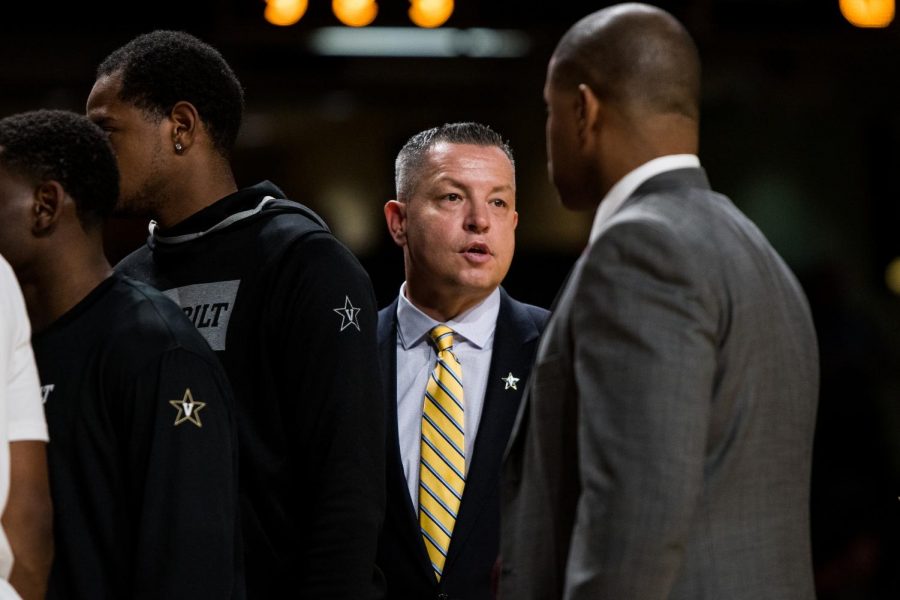
David Grace talks with his cohort during a timeout against Buffalo
Coaching career takes flight
At the time, Grace’s only connection to basketball was his hobby of refereeing.
But after 15-month stint in Turkey, that all changed. He was relocated to the Langley Air Force Base in Hampton, Virginia, where his dreams took flight.
“I only planned on being a college referee one day, but then I went into my new supervisor’s office,” he says. “He had a coaching plaque on the wall, so I asked him about it. He said he coached for Boo Williams’ AAU program, which he said was one of the best in the country. I recognized the plaque because I received the same kind of plaque while coaching my five-year-old son in a YMCA league.”
The supervisor, Sergeant Harris, brought up a coaching vacancy at the program and encouraged Grace to explore the opportunity. Grace was intrigued, but didn’t think it would be more than “park and rec ball.” After all, AAU didn’t exist before he joined the Air Force.
“Clearly, I didn’t know what the heck AAU was. But when I walked into the gym, I was in shock. They had practice jerseys. They all had the same socks. They all had the same sneakers. And their coach even had a practice plan and so I said ‘man, this is a little bit more than park and rec.’ He asked me again, and I finally accepted and I became Assistant Coach.”
Grace would go on to coach for Boo Williams’ AAU Program, one of the best AAU programs in the country. But it wasn’t until the first 17-and-under tournament that Grace truly understood what he had gotten himself into.
“The tournament was held at Hampton University. So I walked in, and there’s [former North Carolina head coach] Dean Smith roaming the gym. Turn around and there’s big [former Georgetown coach] John Thompson walking and talking to parents. I’ll never forget this. When I saw them walking around gym, I knew it at that moment. That’s when I told myself, that I had a dream of becoming a Division-I college coach. Five minutes later, that dream was of becoming a Division-I head coach.”
The road to rebooting Memorial Magic
After a successful stint with Boo Williams’ AAU Program, Grace naturally found himself moving – again.
He was relocated to the Luke Air Force Base in Phoenix, Arizona, where he would eventually start the Arizona Magic, a subset of the storied Compton Magic program. The Arizona Magic blew away expectations; from here, things started to take off.
“In our second season, the Arizona Magic became one of the best AAU teams, if not the best AAU team ever to come out Arizona. We finished eighth out of 336 teams at the famous Big Time tournament and we just barely lost in overtime in the game to get to the Final Four. That’s how good we were. We started getting noticed, and that’s around the time I decided to retire from the Air Force.”
His next challenge was rebuilding the program at a nearby Phoenix high school, South Mountain High School, which was fresh off a 4-17 season.
But perhaps “challenge” isn’t the right word. Grace needed just two years to win a state championship with a 29-4 record.
Finally, he was ready to live out his dream of becoming a Division-I college coach. His humble beginnings had led him to the big stage, where he began with one-year stints at Sacramento State and San Francisco.
“I learned about the grind of Division-I,” Grace says. “I took a $20,000 pay cut, I remarried, and my current wife took care my children, who I had full custody of. When I moved to Sacramento, I slept on the floor in the locker room. I ate when our players ate. I did everything I could to work on my craft. It took a lot of sacrifice there to reach my dream, but I was just so excited for the opportunity.”
After his first two gigs, Grace landed a more desirable role at Oregon State working for Head Coach Craig Robinson, Michele Obama’s brother.
”I spent 20 years in the Air Force, but I never got to meet the president that I worked for,” he remarks. “Not until I landed at Oregon State. There, I got to spend five years with Coach Robinson, meeting Barrack Obama and his family.”
While at Oregon State, he recruited an all-conference guard and first round draft pick in Jared Cunningham, two time Pac-10 scoring leader in Roberto Nelson and Eric Moreland, who just won an NBA title with the Toronto Raptors. After five years in Oregon State, he traveled to Atlanta to watch the 2013 Final Four, where his coaching career would take another turn.
“I landed in Atlanta and my phone started just going off,” Grace says. “I was amazed, since I was getting numerous phone calls that Steve Alford, the brand new UCLA coach, had an interest in hiring me. While there, I was supposed to interview at New Mexico, but Alford called me at 8 p.m. asking to interview me. After that call, Craig Neal, ‘Noodles,’ who’s the head coach at New Mexico texted me and said, ‘Are you interviewing at UCLA? If you are, you’re not interviewing at New Mexico.’ So I started laughing. I called him and said ‘It’s UCLA, man. Come on. You know I’m going to still interview there.’ Noodles said he could offer me more money, but it wasn’t about that. This is UCLA we’re talking about.”
Two and a half hours into his UCLA interview, Alford’s daughter walked in. Grace stood up, shook her hand and introduced himself, a gesture that would play a huge part in eventually helping him land the job.
“I did 20 years in the Air Force, so that’s just how I greeted people. I didn’t care if she was only a sophomore in high school. I was going to give her the respect of standing up and shaking her hand; I just think it’s the right thing to do. The next day, I had dinner with Steve and his family and he said, ‘I never hire people I don’t know, but I’m hiring you. After talking to Craig Robinson, he had great things to say about you. In addition, do you see that young lady down at the end of the table? My daughter? No one has ever stood up and shook her hand. And she thought the world of that. She said I better hire you or I’m not going to have a nice household until I do.’ So I tell the story all the time, because it’s just how you treat people, especially in this business.”
Grace spent five years at UCLA and was credited with the recruitment of Lonzo Ball, T.J. Leaf, Ike Anigbogu, Kevon Looney, Aaron Holiday, Thomas Welsh and many more. One of the few recruits he couldn’t land, Brandon Ingram, is who brought Grace close to Jerry Stackhouse.
When Stackhouse landed the head coaching job in Nashville, Grace was one of the first to call and congratulate him. Not because he was job searching, but because “Stack and I had become great friends, and I was just so happy for him.”
“Of course we lost Ingram to Duke, but I remained close with Coach Stackhouse, Ingram and his whole camp,” Grace says. “I called him and congratulated him when he got this job. And he said, ‘Gracie, I should be calling you. What’s it gonna take to get you off the West Coast?’ I told him I had to ask my wife, so I go downstairs and I didn’t ask her. I said to her, ‘we’re going to Nashville.’ I said that because I think the world of Coach Stack. I’m a big fan of his and I really thank him for this incredible opportunity.”
If you ask Coach Stackhouse, he’ll give credit where it’s due, labeling Grace as an “unbelievable, tireless recruiter.” But that just scratches the surface.
He reiterates Grace’s message; he understands that his Associate Head Coach is far more than just a recruiter.
“He recruited a couple of my kids, Brandon Ingram in particular… We formed a relationship, and he had a reputation as a great coach, a great person and a great recruiter. But it’s kind of a catch-22 because it puts him in a box. Now everybody, all they say is ‘he’s a good recruiter’ and they don’t give him his props for being a really good basketball coach. So hopefully, we’ll be able to shed light on both of those. David will get us talent, but he’s so much more than that. He’ll still show off what he is: a really good basketball coach.”
David Grace’s long, winding journey has finally led him to Nashville, Tennessee. At last, in the heart of the Music City, he’s found home.
“I’m looking forward to building an incredible program here at Vanderbilt,” Grace says. “I know we have what it takes under Coach Stack and Malcolm Turner’s leadership. This is my first time serving as Associate Head Coach and I’m so thankful that Stack gave me this title. It’s been a joy to be around our players, learning the new NBA-like system and coaching them in practice. I’m so happy to be at Vanderbilt and in the SEC, and the way our season has gone so far has been incredibly rewarding.”


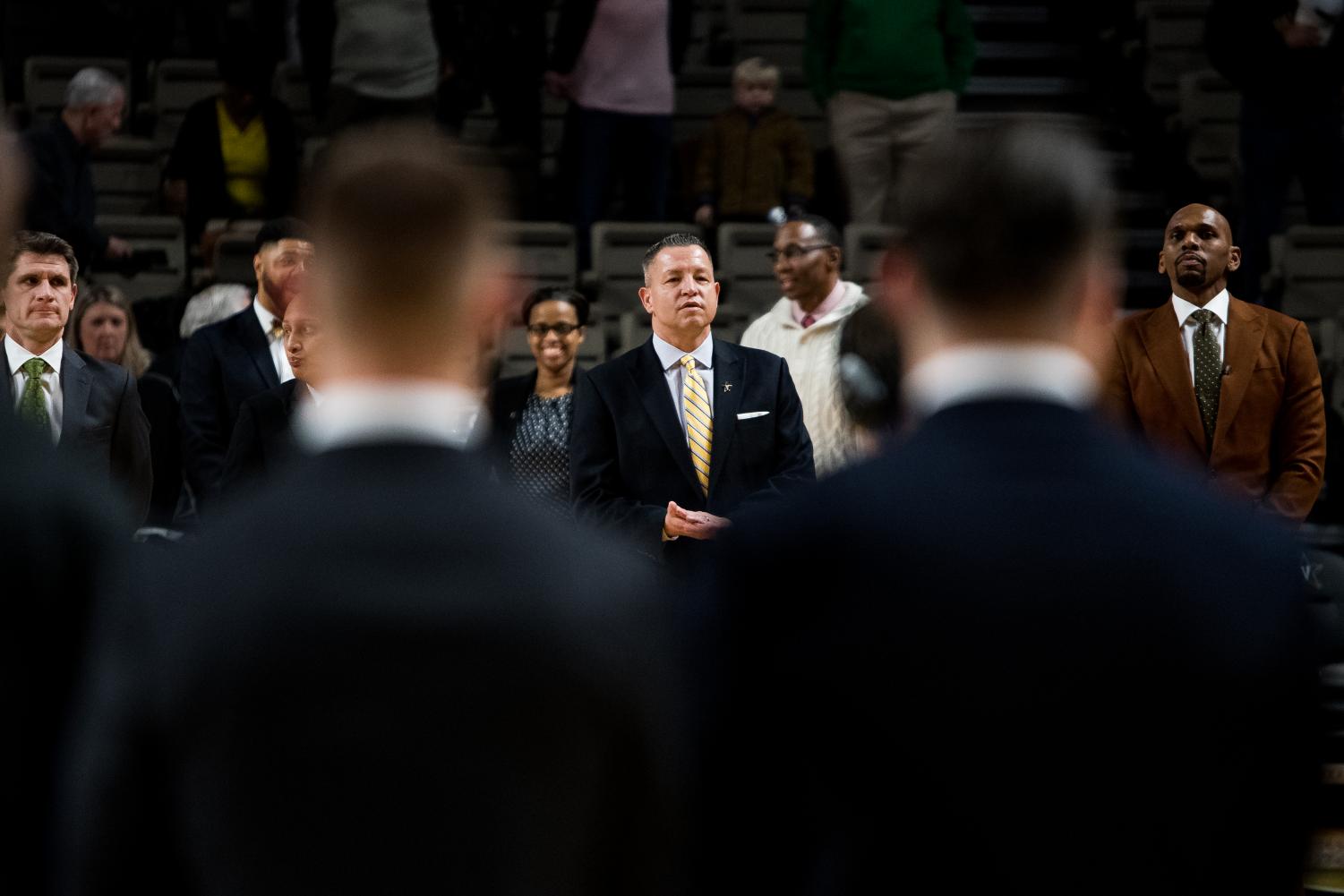

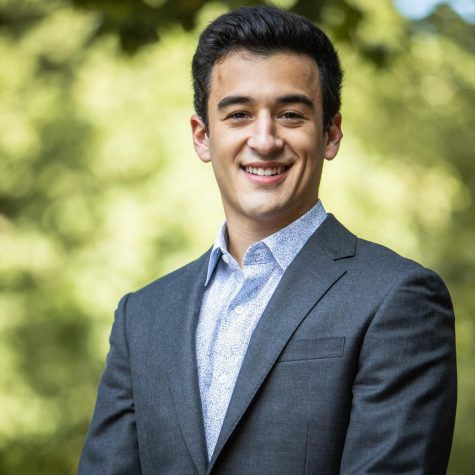
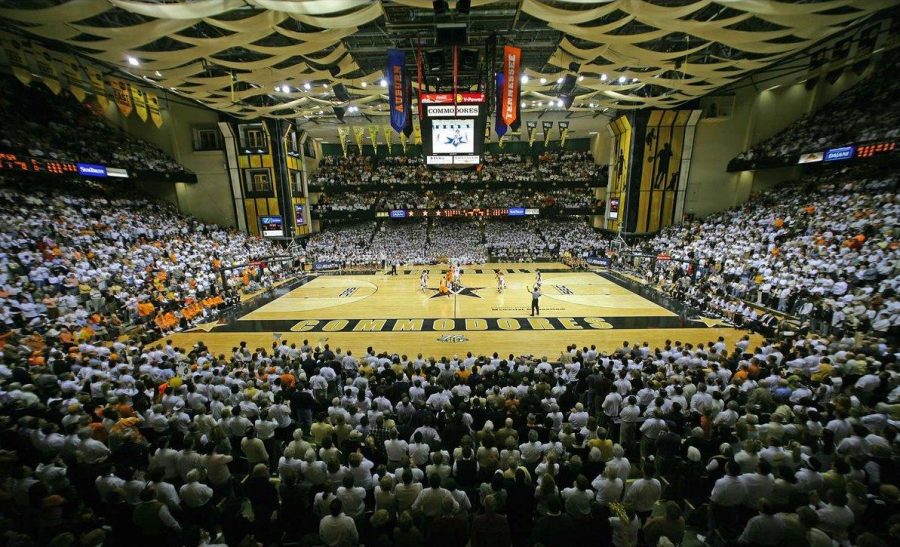
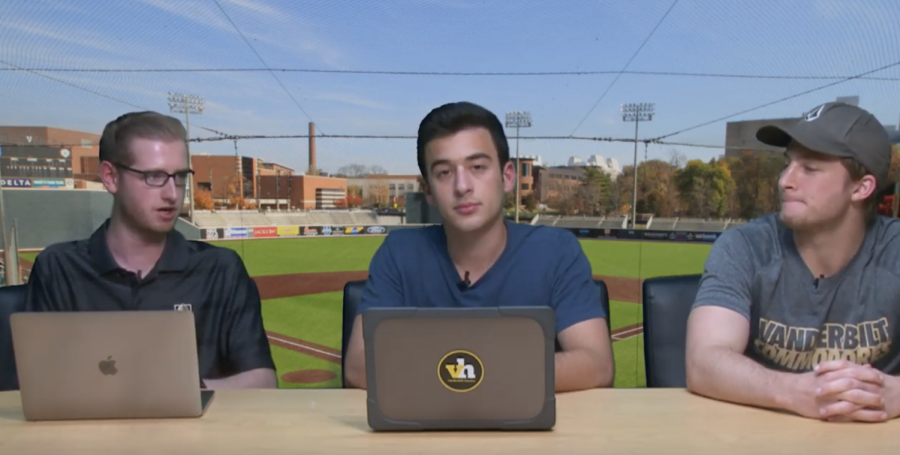
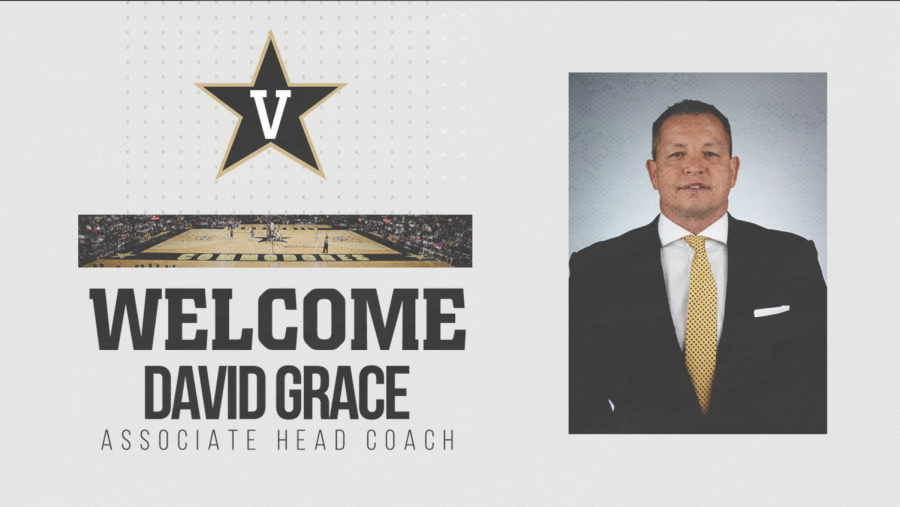
Whitworth Stokes • Jan 17, 2020 at 12:24 pm CST
Interesting story. Sort of the mirror image of the Perry Wallace recruitment process when Coach Roy Skinner addressed Perry’s parents as Mr. and Mrs Wallace and not by their first names.